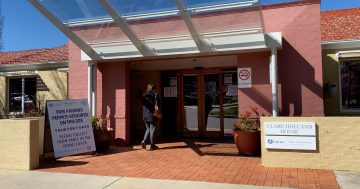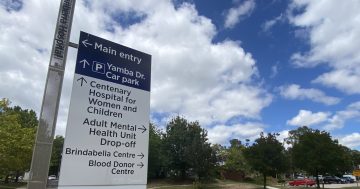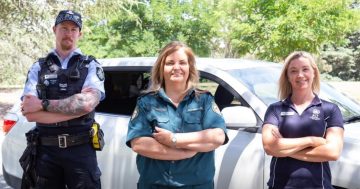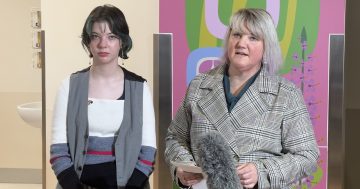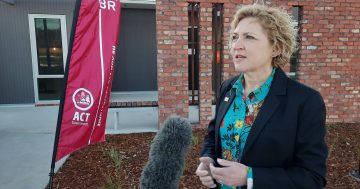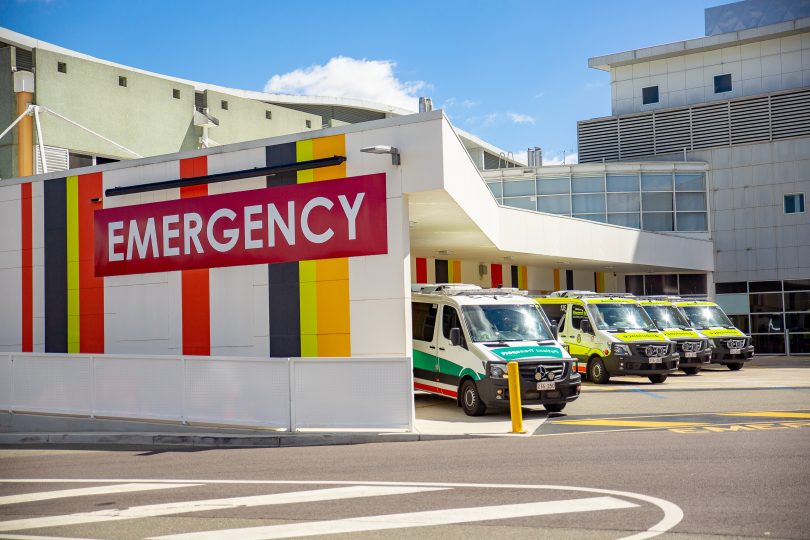
Mental health wards at Canberra Hospital and Calvary Hospital are at full capacity following recent increases in mental health admissions. Photo: File.
Canberra Hospital’s Adult Mental Health Unit has recently been running at full occupancy. Similar in-patient levels have been recorded at Calvary Hospital, the ACT Government’s Select Committee on the COVID-19 pandemic response has heard.
Since the start of this year, there has been a 10 per cent increase in admissions across the ACT’s acute mental health services and a 14 per cent jump in demand for high-dependency beds compared to the second half of 2019, executive director of the Mental Health, Justice Health and Alcohol and Drug Service, Karen Grace, told the committee.
“We have seen an increase in presentations of people who are the high end of being unwell, which is a significant increase in what we would ordinarily see,” she said.
“There has [also] been a significant increase in patients with comorbid drug and alcohol abuse issues.”
An ACT Government spokesperson said beds may be full, but no-one is being turned away from acute beds and patients are being moved around on a daily basis. Eight extra beds have also been called in at both Canberra Hospital and Calvary Hospital.
ACT Minister for Mental Health Shane Rattenbury said five of these extra beds are being opened at the Older Persons Mental Health Service at Calvary Hospital, in Bruce, to cope with increased demand.
“The mental health implications of the COVID-19 pandemic are something this government, and indeed across the Commonwealth, have been alive to,” he said.
“We have also experienced demand pressure as a result of the COVID-19 period.”
However, mental health advocacy groups previously told the Inquiry into Youth Mental Health in the ACT that there is a gap within Canberra’s mental health services when dealing with some severe cases.
Executive director of the ACT Youth Coalition, Dr Justin Barker, says Canberra’s health system is being forced to triage its most critical cases. Severe mental health cases are being referred back to community organisations which do not have the capacity to deal with them.
Dr Barker told the committee that only when patients only enter the mental health system when they are on the precipice of a crisis.
“People at suicide risk and having florid psychosis are being asked to go back home,” he said. “It is incredibly discouraging being told [you are] not severe enough for help.”
The saturated service has a trickle-on effect. When patients are told their illness is not acute enough, they are pushed back into the community sector and may not ask for help again in the future, said Dr Barker. He added that the system is suboptimal as young people are being introduced into the system in a very ad-hoc way.
The CEO of Mental Illness Education ACT (MIEACT), Heidi Prowse, said more work needs to be done to connect with young people prior to them being in an acute mental health situation.
While MIEACT programs cover 83 per cent of ACT secondary schools, and will cover 100 per cent during the next 12 months, there are only trial mental health programs in school classrooms for year-three and year-four students.
As most programs start at the age of 12, there is concern that young students aged eight to 12 who are at risk of developing mental health issues are being forced to face the situation before they get the chance to build resilience or learn about what they can do, said Ms Prowse.
However, Mental Health, Justice Health and Alcohol and Drug Service CEO Ms Grace said that despite the increase in mental health presentations from younger people, telehealth services and more technological engagement are not a panacea for reaching young people.
“What we saw initially with young people was a good uptake of telehealth, but over time, during the past month or so, there has been a level of disengagement with young people not answering the phone when their clinical manager is calling them,” said Ms Grace. “But that is anecdotal.”
If you or anyone you know needs mental health support, contact Lifeline on 13 11 14 for 24-hour crisis support. In an emergency, call triple-zero (000).
Dedicated mental health and wellbeing resources are also available through ACT Health’s COVID-19 website.















